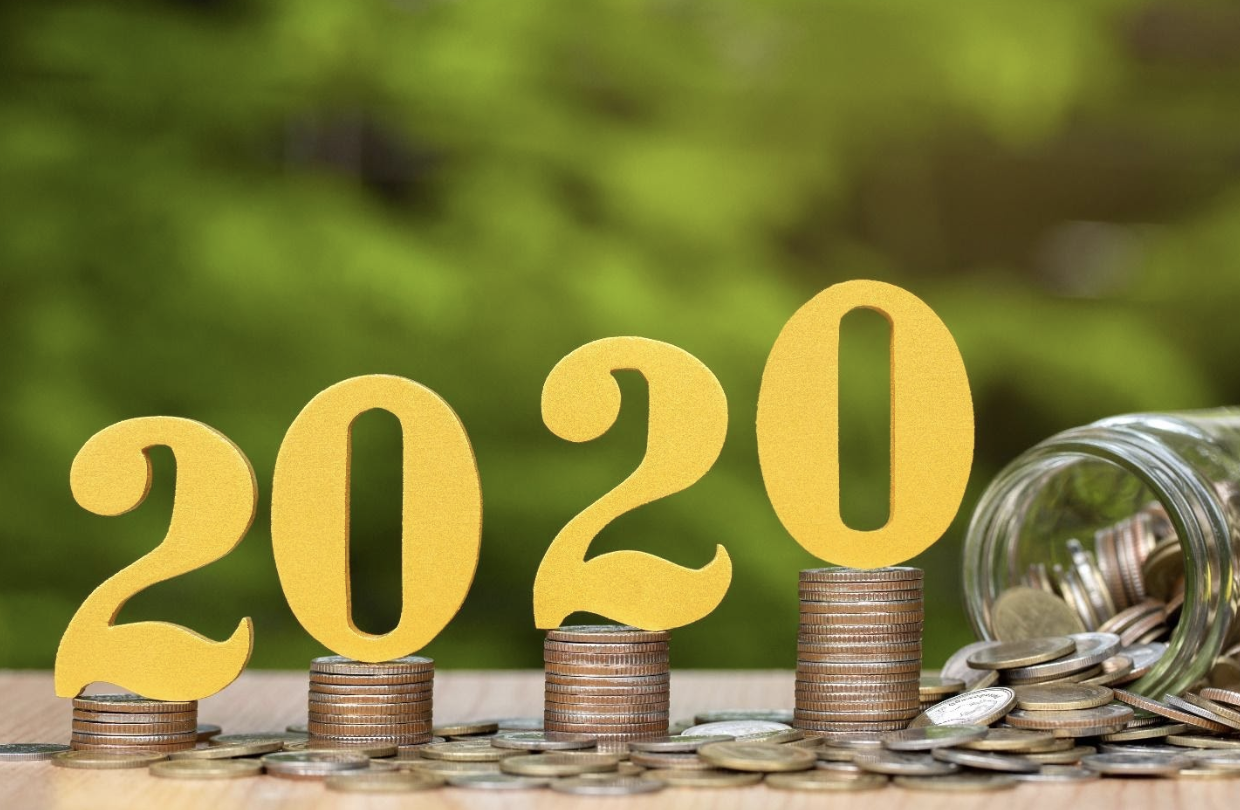
Introduction:
Setting realistic goals is going to create a foundation for how you’ll begin managing your finances. Goals can range from paying off building up savings, paying off credit cards or building an emergency fund. It’s important to remember that the goals you set are yours and you should pick what is most important to you and your family. When creating your financial resolutions for 2020, ensure that you’ll be taking a SMART approach, as this will give you a better direction.
Create a Budget
If you haven’t created one before, 2020 is the year to creating a budget as a financial resolution. A budget is going to make all other goals you set financially much easier to reach as you’ll have all of your finances housed in one place. Without a budget, you’re unable to keep track of finances and spending habits. This leads to mindless spending and financial stress when you can’t figure out where all your money is going. Start with inputting all your sources of income from your job, grants and loans. Once you have that all mapped out, you can then create a budget for your necessities. The last portion of your budget is money set aside for miscellaneous expenses. Although you want to be realistic with this number, you should keep this amount as low as you possibly can without going out of budget.
Spend Less Than You Earn
Spending less money is going to ultimately help you build your savings. If you created your budget, you have an allocation for miscellaneous’ purchases; however, you should always challenge yourself to spend less than what is initially set aside. Tracking your budget can give you a lot of insight into what you spend your money on. If you find that you’re spending too much eating out at restaurants or spending too much shopping, then it may be time to cut those bad spending habits. Since you’ll want to set realistic goals, determine whether or not you have the will power to cut these habits immediately or if you need a more gradual approach.
Tackling Debt
After accumulating debt in 2019, it’s likely that paying down debt is a resolution you’ve set for yourself in 2020. It’s important that you create a strategic and realistic plan in order to tackle your debt. Ensure that you create a specific goal as far as how much you can put towards your debt each month. Instead of making a broad goal such as, “I want to pay off my student debt this year”, you need to make sure it is specific, measurable, realistic and timely such as “I want to pay off half of my student debt by October 2020”. Your goals will vary depending on your financial situation, but they should all follow the SMART approach. If you find that tackling debt is going to be too difficult due to financial struggles and you’ve filed for bankruptcy, replace this resolution with ways you can move forward after filing for bankruptcy. This will get you on a healthy track for your financial future.
Start an Emergency Fund
If you haven’t already, 2020 is the year to start up an emergency fund. Creating an emergency fund is a resolution that will benefit you when emergency unexpected expenses arise. The goal is to have an emergency fund that amounts to roughly three to six months of living expenses. When an unexpected financial event occurs, your fund will prevent you from opening up loans and running up your credit cards.
Quit Impulse Buying
Developing healthy financial habits in 2020 can set you on the right financial track for the rest of the year. Attempt to limit those spontaneous impulse buys that don’t fit into your budget. Today’s digital age makes it difficult to restrain yourself from jumping at a deal. Instead of walking outside and considering a cup of coffee, today’s impulse buys have become more sophisticated. You could easily shop on impulse in the comfort of your home when you open up your laptop. Try spending less time browsing the web or skimming through amazon. Window shopping isn’t easy when coupons are available everywhere online. If you’re going to be online steer clear of retail sites and include an advertisement blocker to your browser to eliminate any advertisement temptation. Pull back from making emotionally charged impulse purchases to save more money this year and turn your goals into realistic expectations.
Conclusion
Setting tangible goals will help you overcome hurdles this upcoming year. Consider a different money mindset this year, reach for digestible goals. Start off small if you must. Many expenses can be avoided by thoroughly budgeting or creating a simple emergency fund you can always revert to. The more realistic you are about your financial decisions the better financial stability you’ll acquire. Approach your finances diligently and reap the savings you’ve earned by the end of the year.


